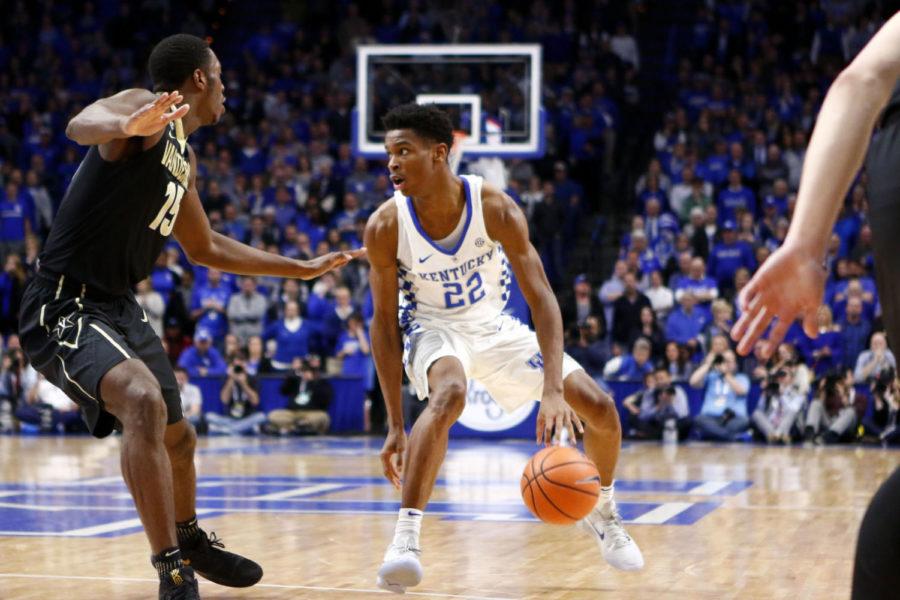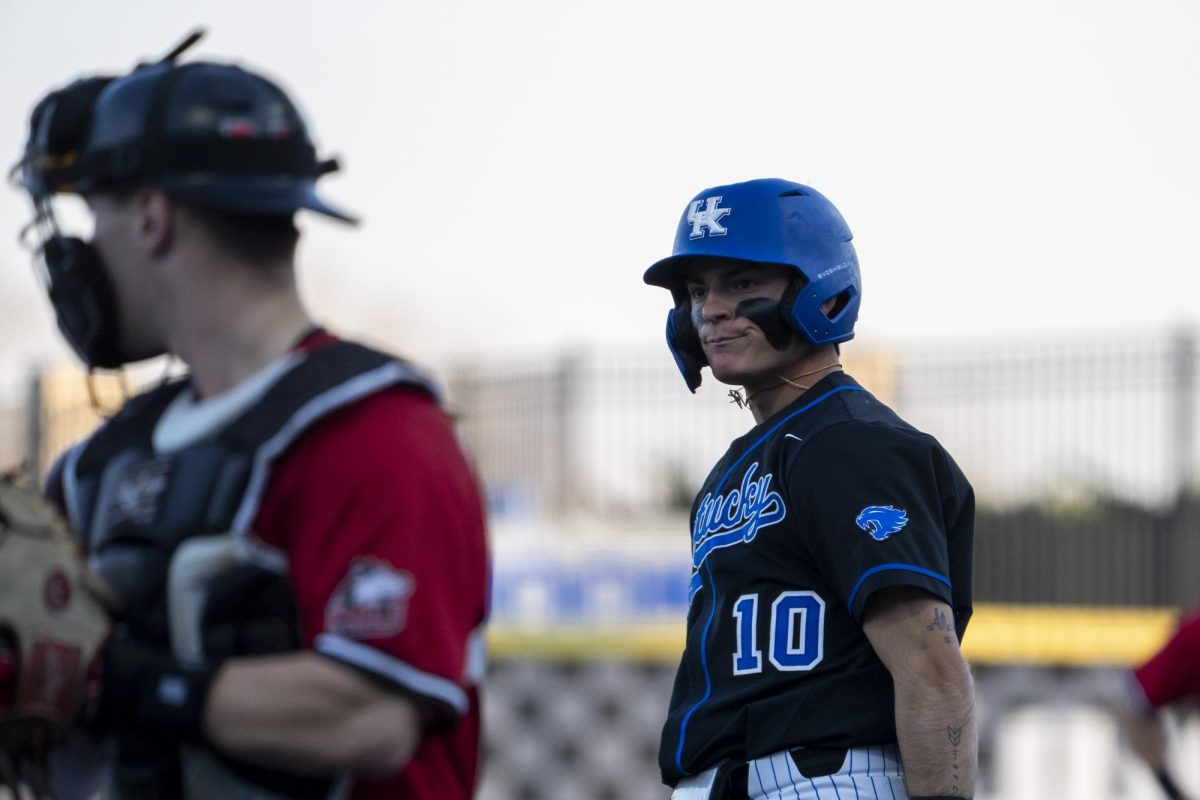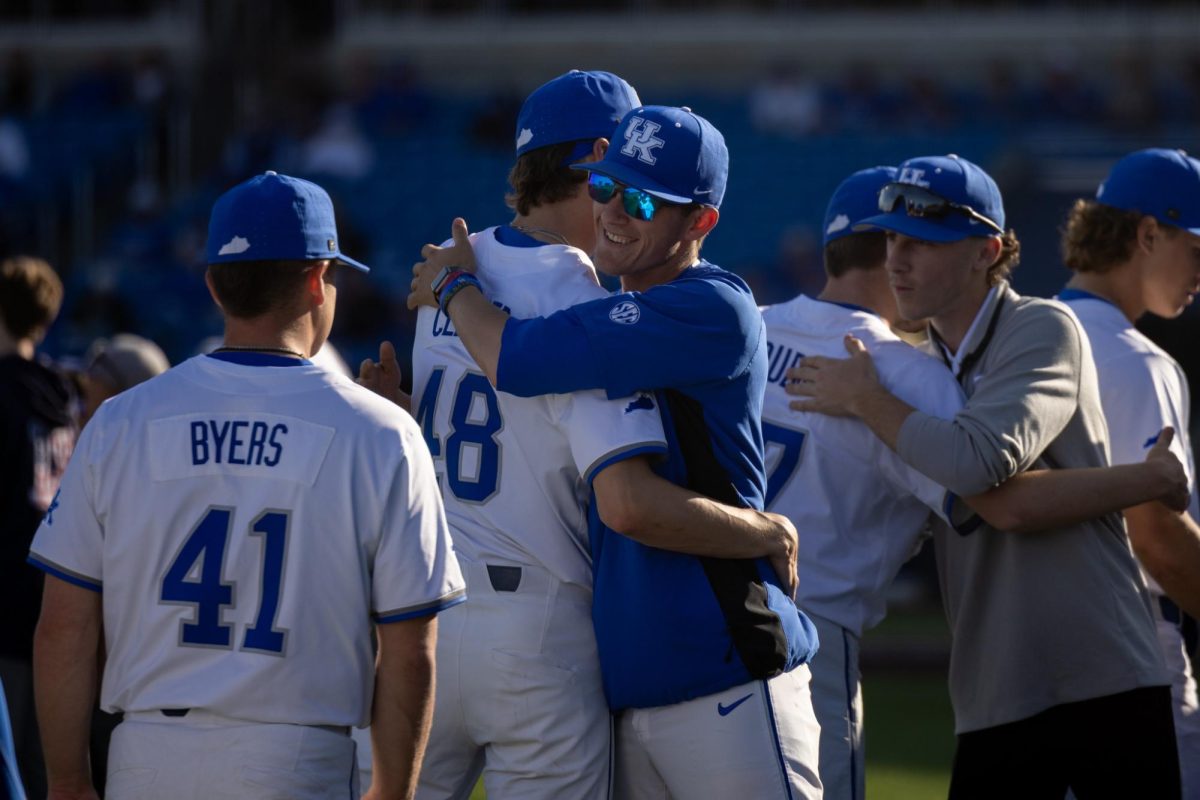WRFL maintains broadcasting streak while quarantined
May 20, 2020
In over 30 years, UK’s student-run radio station, WRFL 88.1, has never gone off the air — not even now, during a pandemic, when the station has moved its operations outside the studio for the first time in its history.
“Our first goal was to make sure we stayed on the air,” said WRFL Media Director Ben Allen. “Our whole mission is based on serving the public.”
WRFL typically broadcasts its programs live, with different DJs for each program. However, since March 23, WRFL has operated remotely due to the coronavirus pandemic. This has prompted the station to shift to prerecorded programs. Programming Director Joe Will said that although the situation is unprecedented, the station had wanted to experiment with remote operations before they were necessary.
“It is something we had always wanted to do, in case there was someone unable to show up for a shift [or] one of the programming directors didn’t want to come in at two o’clock in the morning,” Will said. “We’re now able to control the on-air computer and be able to play shows from home…in case we ever needed to not be in the station again.”
The station uses the audio software Audacity, as well as Google Drive and Dropbox, to record and accumulate the parts of a radio show, which the DJs then organize and broadcast.
“The radio term for it is the ‘traffic guide,’” said Becky Fulton, WRFL’s general manager. “That would be the general station promotion, like, ‘You’re listening to WRFL Lexington’…other grant spots that acknowledge our underwriters…[and] any other specialty shows.”
Sophomore Camille Harn is one of WRFL’s programming directors, monitoring the broadcast content and making sure it is compliant with Federal Communications Commission requirements. Harn said that although the station had some initial difficulty with its audio software, the staff is managing remote operations well.
“There was a bit of a learning curve…trying to get into the rhythm of doing something completely different than what we’ve done before,” Harn explained.
“The system we have is kind of hodgepodged together,” Allen said. “Every day and every week we’re making improvements on it…I wouldn’t say it’s anything too major.”
Most of WRFL’s DJs live in the Lexington area; however, Fulton said that the station’s remote operation has opened up more opportunities for others to get involved with the station. Student and alumni volunteers, some as far away as California, have assembled shows. In addition, WRFL is moving its training program DisOrientation online so that prospective DJs can learn audio editing skills.
“These…skills are highly marketable, and you can use [them] in almost any industry,” Fulton said. “The nice thing about this online training is that…students would have the opportunity to be involved with WRFL no matter where they are.”
Fulton explained that DJs are given a lot of freedom with what music they choose to play, as long as their music adheres to the WRFL guidelines.
“We play stuff that’s considered outside the mainstream,” Fulton said. “The idea is that we want to give a platform to these artists and musicians that they don’t have anywhere else.”
The station usually provides this platform through WRFL Live, a show in which DJs feature and interview local bands. However, due to the shift to remote operations, this show can no longer be produced. WRFL countered this loss both by playing its archive of local music and by creating Noise from the Attic, a program that features “ambient, electronic” music through livestreamed concerts.
“We felt that that…genre wasn’t being promoted within any other local events that were going on,” Fulton said. “Lexington does tend to [promote] more of that Americana folk-y stuff, and…a lot of that [electronic] music is already set up to do very well for virtual events.”
In addition to spotlighting local artists, WRFL continues to feature UK students and campus events. At the beginning of May, WRFL collaborated with UK to announce the names of all graduating seniors.
“We tried to organize it in a way so that we could let people know when to listen. Trying to listen every day, twice a day…would be pretty wild,” Allen said. “[The list of names] was already divided by college, so then we just broke it down into smaller chunks based on degree. That way we were able to advertise, ‘on this day you’re going to hear the names from this college.’”
“We got a lot of streams because of that,” Harn said. “People loved tuning in to that.”
Though the station is succeeding with its virtual operations, its staff is eager to return to campus.
“That’s really what WRFL is about, having that physical presence in a studio and having studio-quality recording with it,” Will said. “This is working right now…and a lot of people have studio equipment at home, but it’s…hopefully temporary.”
Still, the station’s staff are grateful that they can stay on the air and carry out its mission even while isolated.
“[WRFL] gives students an opportunity to get involved in something that has more applications than just the campus atmosphere,” Fulton said. “We give a chance for students to get involved with their local community, especially…the local arts and culture scene.”
“We can be a good source of news for people that are tuning in. It provides a light in the middle of all this darkness,” Harn said. “Despite all the craziness, you can still tune in to WRFL and get music that you’ve never heard before.”
























































































































































